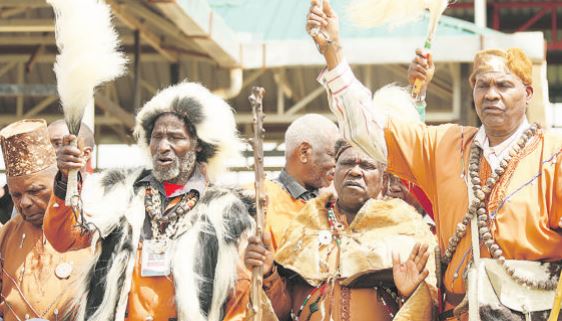
Top cultural organ in Central Kenya, the Kikuyu Council of Elders, says the next three years will be crucial in how the community builds future relations with other Kenyans and whether it maintains an influential position in national affairs.
Wachira wa Kiago, the Chairman of the Kikuyu Council of Elders Association (KCEA) says various factors including the destruction of the youth through alcohol, intensive family planning practices, a confused political direction and the subdivision of land into non-productive portions are among key threats facing Central Kenya.